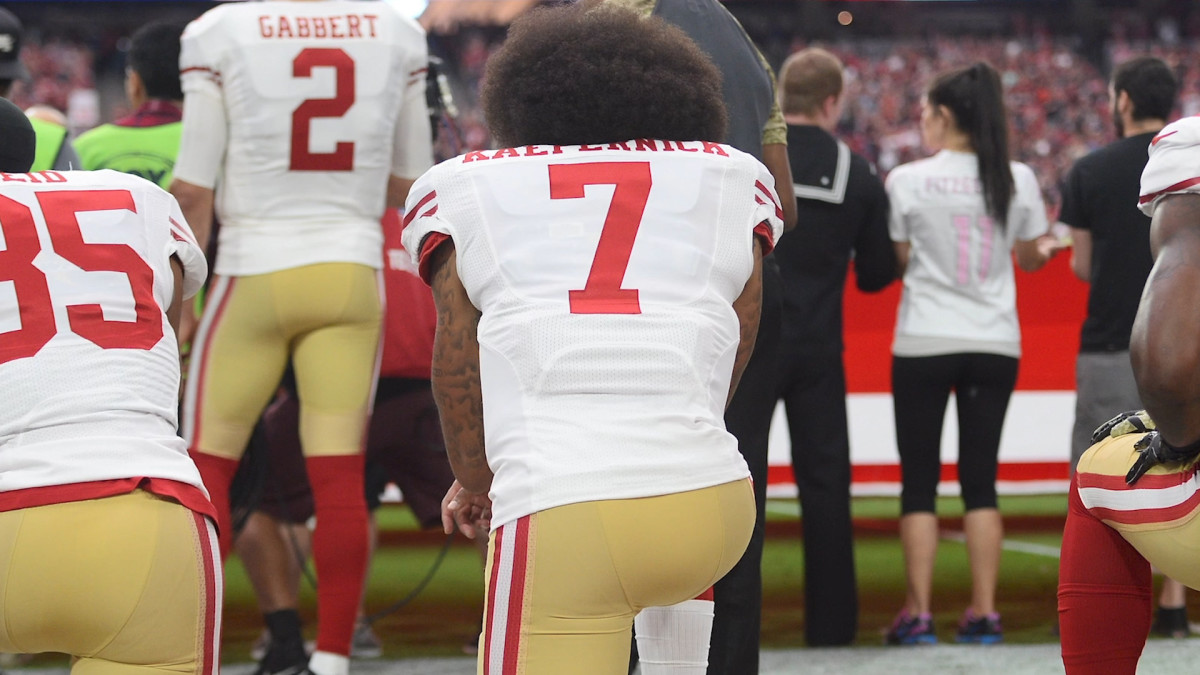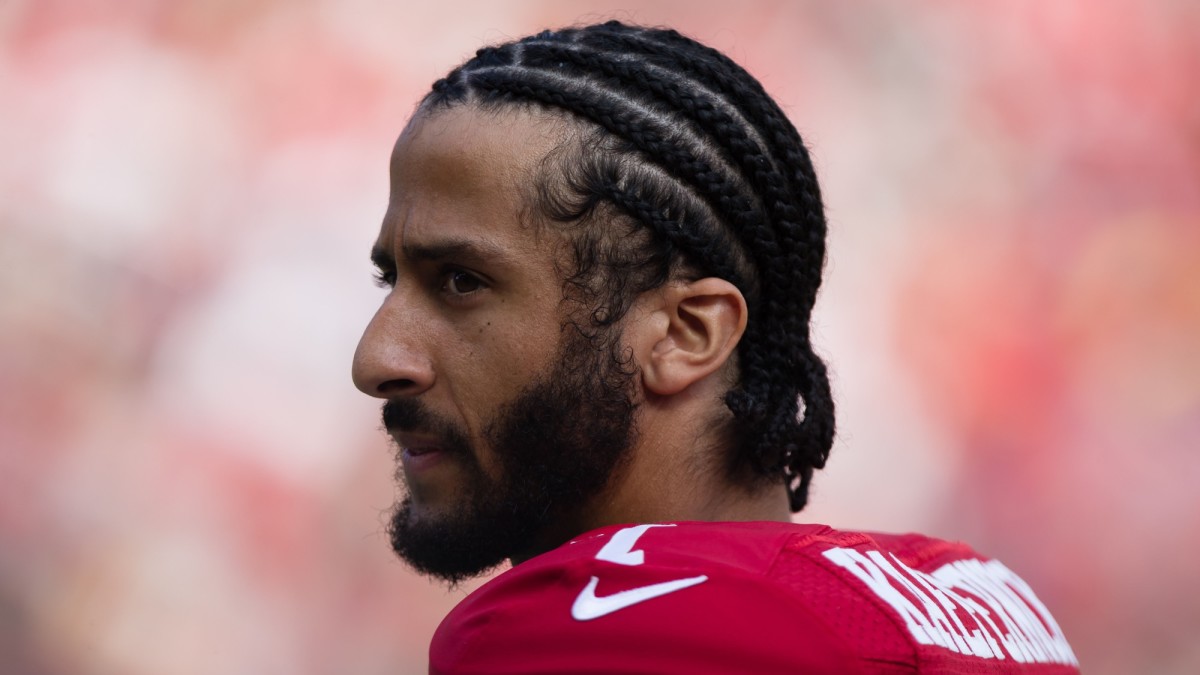Why Roger Goodell’s Apology Is Significant
On June 5, the NFL issued a statement on Twitter condemning racism and admitting that it was at fault for not listening to earlier protests—namely Colin Kaepernick taking a knee—in years prior.
Sports Illustrated's Robin Lundberg explains why commissioner Roger Goodell's statement is significant, even though the NFL hasn't yet issued a personal apology to Kaepernick.
We, the NFL, condemn racism and the systematic oppression of Black People. We, the NFL, admit we were wrong for not listening to NFL players earlier and encourage all to speak out and peacefully protest. We, the NFL, believe Black Lives Matter. #InspireChange pic.twitter.com/ENWQP8A0sv
— NFL (@NFL) June 5, 2020
Read the full video transcript below:
Robin Lundberg: Whatever you think of how it came to be, Roger Goodell and the NFL’s latest statement is significant. Because it shows what the country is currently thinking.
I realize for many it will not have true meaning without a direct apology to Colin Kaepernick, but think about how far the conversation has come, from essentially ostracizing him for kneeling, to Drew Brees doing a complete 180 on his disrespecting the flag comments.
No longer are people arguing over the merits of the protests, but instead the NFL commissioner is saying the league was wrong and we see the focus actually moving to social injustice and policing.

And one must consider the audience the NFL speaks to. I’ve argued the league may be the single most popular thing in this country. It is viewed in blue and red states and everything in between. So for them to go from being scared of backlash from certain fans for allowing players to take a stand, to having the commissioner on camera addressing exactly what the players asked, is a serious shift. It shows both that players in the NFL are beginning to realize the power they have, and that the inverse of the backlash the league originally feared is now far more powerful. Again, just ask Brees.
So, while my default position is hoping for people’s best intentions when they show a change, I understand why some remain cynical. However, I wouldn’t underestimate the significance of the NFL saying this. Because in many ways, nothing speaks to America as football does.
Analysis from Kyle T. Mosley of Saints News Network:
“In the end, we will remember not the words of our enemies, but the silence of our friends.” Dr. King
The professional trust between the NFL and the player has been precarious. One of the most lucrative businesses in America has a severe trust issue to resolve with the players. 70% of the NFL's players are African-American. Unfortunately, the league has no African-Amerian majority owners and fields two General Managers and only three coaches who are black. Hence, who can they rely on in an executive capacity to adequately address their plight as a minority male in this country? The NFL considers Shahid Kahn (Pakistani American) of Jacksonville and Kim Pegula( Korean American) of the Buffalo Bills as owners of color.

The ownership issue has always been problematic, and the league chooses to be silent on the matter for over 100 years. The owners' business exists because of the talent and ability of these men who play the game. The athletes are seeking support from the NFL and their non-white teammates. Why? Because they forced to challenge and tackle racism, social intolerance, police brutality, and prejudice every day of their lives. Silence can no longer exist in today's NFL. The owners and executives should not condemn a player(s) peaceful protest; instead, they should seek to understand and embrace the reason why the protest(s) exist. Continued progress depends on the NFL owners' public support of the players and surrounding communities. The only owner to release a statement in support of fighting social injustice was New Orleans Saints' owner Gayle Benson. It's time for the Jones' and Hunts' of the NFL to speak-up for these men who represent their clubs. Sometimes, silence can be deafening - but the silence is noticeable.
